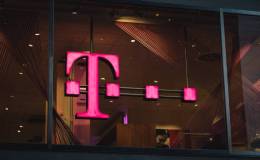Guest author Kent Dickson is the CEO and cofounder of Yonomi, maker of a smart-home app.
Last month saw the sad news that Quirky has filed for bankruptcy. Its sister company, Wink, is on the auction block and has an uncertain future. The pair have been among the boldest and most prominent players in the early stage of the smart-home market: Quirky raised enormous amounts of money from key investors like General Electric and signed big distribution deals with Home Depot. Quirky and Wink had great designers and a talented engineering team.
What happened? Is this an indicator that the smart-home market is failing?
No. It’s merely the bumpy adolescence stage that each technology wave muddles through on the way to adulthood.
Searching For Tech History
For those of you not old enough to recall the mid-’90s, here’s a little history lesson. Grunge music was hot and the consumer Web was just getting underway. There were also several high-profile startups trying to search the Web.
Possibly the most prominent search engine of the era was AltaVista. It was an outfit full of smart people with innovative ideas, funded by one of the most successful IT companies of that age, DEC. AltaVista was visionary, but we all know the outcome. Despite its early prominence, it lost a lot of money and eventually landed in Yahoo’s hands through a series of sales. (Yahoo finally shut it down in 2013.)
Google went on to win the Web-search race and is now one of the most valuable corporations the world has ever known.
It wasn’t exactly that AltaVista was too early. It’s just that the early stages of new markets require a lot of experimentation. Even if one has the right idea—“search engines are critically important to the Web”—you still have to get all of the technology, form factor, marketing, and business-model bits working exactly right. Sometimes the early entrants serve as the laboratory from which everyone learns.
Other examples abound. Remember eToys and Broadcast.com? Would current-day giants Amazon and Netflix be where they are today without those early pioneers? Probably not.
Growing Pains
Did AltaVista’s high-profile failure mean that the consumer Web was not a viable market or that the search engines weren’t a foundational component of that market?
Of course not. Consumers are fickle and, although they probably can’t tell you exactly what they want, once they see it they flock to it (and away from the others). The differences can be subtle on paper but dramatic in the marketplace.
The startup world may be tumultuous and indeed painful, but it plays a critical role in making these new transformative markets happen. Missteps and failures here contribute to critical learnings that eventually unleash massive consumer benefits and enormous value creation.
The Smart Home Is Happening
Despite Quirky and Wink’s misfortune, the smart-home transformation is well underway. This incident will not slow the rapid rate of Nest, Sonos, and Philips Hue installations. The time is near when you’ll find it difficult to buy an appliance—maybe even a light bulb—that doesn’t have a wireless radio embedded in it. That moment has already happened for TVs. Amazing new products are constantly appearing on the scene, like the Amazon Echo voice assistant that continue to refine and redefine what is the smart home.
The smart home is happening despite its typically rough adolescence. We’re about to see it blossom into young adulthood, and it will be awesome.
As Gartner has taught us, the “Trough of Disillusionment” (the culmination of hype driven by early disappointments) is followed by the “Slope of Enlightenment” (the prolonged, uninterrupted growth stage). This is where we’re now headed, and there’s no turning back.
Photo courtesy of Shutterstock

















